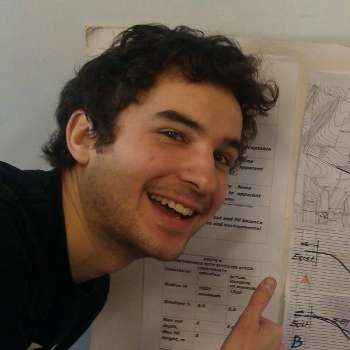The intimacy of Schubert’s Lieder almost guarantees that no words can be missed. In comparison to say, a 100-strong choir competing with a full orchestra, the poetic element of Lieder is unmissable, and thus it occupies a larger part of the concertgoer’s attention. Schubert of course recognised this, and selected his wordsmiths carefully. Had he had the ability to to hand-pick tenors to sing those words in generations to come, he may well have chosen Markus Schäfer. His ability to transmit melody, as well as words, with an unmissable articulacy was abundantly clear at the Wigmore Hall on Sunday afternoon.
The poet August Wilhelm von Schlegel was a regular contributor to Franz Schubert’s Lieder production, and his romantic verse was fittingly set to maudlin tones, before the romantic movement grew the muscles we’re now so familiar with. In “Wiedersehn” (“Reunion”) it was immediately apparent that Schäfer was in fine voice and was intent on giving the music the svelte romanticism that von Schlegel articulated through his pastoral work. Schäfer’s upper register is sweet, and in this rendition at least, not over-fed, so miniature climaxes such as “Schweb, auf des Liedes raschem Flügel” (“Love sails to greet you on swift wings of song”) were appropriately light and descended back to the home key without unnecessary fuss.
With the exception of “Sprache der Liebe”, a comparatively racy text (“... your notes vibrate, breathe, lament, moan”), the von Schlegel set is easily identifiable as evening music. “Abendlied für die Entfernte” (“Evening Song for the Distant Beloved”) is a song of great longing, verging on restlessness, that with its many piano interludes seems to take on the dark evening passions of the compline or vespers. Schäfer gave each of the short phrases as much vitality as time would allow, gliding through intervals as opposed to merely servicing them, and in doing so, reconnected the fragmented elements of the poem into a truly emotive narrative. “Die gefangenen Sänger” (“The Captive Singers”) is a less insistent song, with pauses allowing Schäfer clear opportunities in which to dramatise the content of the poem. Similarly affecting dramatisation was found in Lane’s repeated major/minor alternations, and more generally, in the eerie effect of the hall’s acoustic on his somewhat tenuto style.
After a short break, Schäfer and Lane returned to perform a second, significantly longer set of Schubert Lieder, of Johann Gabriel Seidl’s literary provenance. In “Am Fenster” (“At the Window”), Seidl’s slightly odd text, primarily concerning walls, is set to stout piano chords and a plain tenor melody, marked slow and pianissimo throughout. Schäfer and Lane gave the song a great deal of lyrical shape, and in enunciating with such conviction, one’s attention was drawn from the sickly theme of the poem.
Unsurprisingly, the Seidl set is varied in its subject matter and in its musical treatment. Such variety of mood was a particularly useful tool in engrossing the audience, but more importantly it afforded the musicians ample opportunity to show their flexibility. The straightforward love song “Bei dir allein”, for example, requires a wide range, from middle C to top A – and great control in corollary, to make its ardour felt. This was in clear contrast to the “Wiegenlied” (“Cradle Song”), whose melody was performed so smoothly that it would have been soporific were it not so captivating.
Schäfer is a renowned Lieder singer, and I would say for good reason. This was an engaging and thoughtful rendering of a well selected programme, that sold the virtues of poetry and song to a very appreciative audience.


